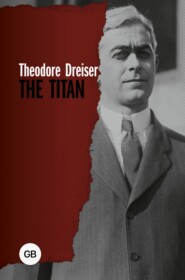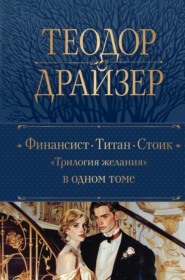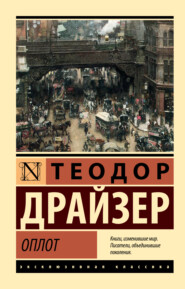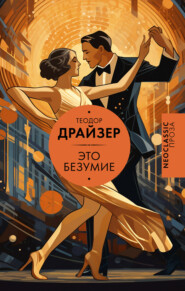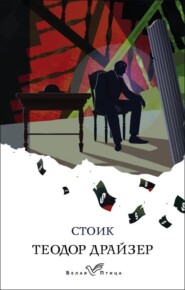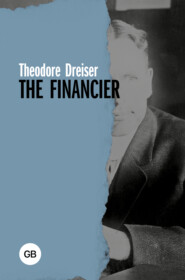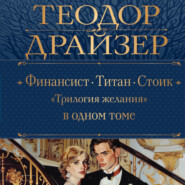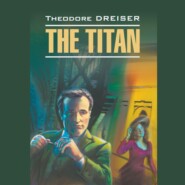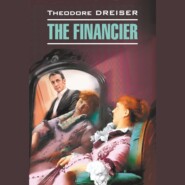По всем вопросам обращайтесь на: info@litportal.ru
(©) 2003-2025.
✖
The "Genius"
Настройки чтения
Размер шрифта
Высота строк
Поля
"I won't tell you now," she said, "I want to talk to papa and mamma. I haven't told them anything as yet. I want to ask them about you, and then I'll tell you when I come again."
"Oh, Angela," he pleaded.
"Now, please wait, Mr. Witla," she pleaded. She had never yet called him Eugene. "I'll come again in two or three weeks. I want to think it over. It's better."
He curbed his desire and waited, but it made all the more vigorous and binding the illusion that she was the one woman in the world for him. She aroused more than any woman yet a sense of the necessity of concealing the eagerness of his senses – of pretending something higher. He even tried to deceive himself into the belief that this was a spiritual relationship, but underneath all was a burning sense of her beauty, her physical charm, her passion. She was sleeping as yet, bound in convention and a semi-religious interpretation of life. If she were aroused! He closed his eyes and dreamed.
CHAPTER XIII
In two weeks Angela came back, ready to plight her faith; and Eugene was waiting, eager to receive it. He had planned to meet her under the smoky train shed of the Chicago, Milwaukee and St. Paul depot, to escort her to Kinsley's for dinner, to bring her some flowers, to give her a ring he had secured in anticipation, a ring which had cost him seventy-five dollars and consumed quite all his savings; but she was too regardful of the drama of the situation to meet him anywhere but in the parlor of her aunt's house, where she could look as she wished. She wrote that she must come down early and when he arrived at eight of a Saturday evening she was dressed in the dress that seemed most romantic to her, the one she had worn when she first met him at Alexandria. She half suspected that he would bring flowers and so wore none, and when he came with pink roses, she added those to her corsage. She was a picture of rosy youth and trimness and not unlike the character by whose name he had christened her – the fair Elaine of Arthur's court. Her yellow hair was done in a great mass that hung sensuously about her neck; her cheeks were rosy with the elation of the hour; her lips moist; her eyes bright. She fairly sparkled her welcome as he entered.
At the sight of her Eugene was beside himself. He was always at the breaking point over any romantic situation. The beauty of the idea – the beauty of love as love; the delight of youth filled his mind as a song might, made him tense, feverish, enthusiastic.
"You're here at last, Angela!" he said, trying to keep hold of her hands. "What word?"
"Oh, you musn't ask so soon," she replied. "I want to talk to you first. I'll play you something."
"No," he said, following her as she backed toward the piano. "I want to know. I must. I can't wait."
"I haven't made up my mind," she pleaded evasively. "I want to think. You had better let me play."
"Oh, no," he urged.
"Yes, let me play."
She ignored him and swept into the composition, but all the while she was conscious of him hovering over her – a force. At the close, when she had been made even more emotionally responsive by the suggestion of the music, he slipped his arms about her as he had once before, but she struggled away again, slipping to a corner and standing at bay. He liked her flushed face, her shaken hair, the roses awry at her waist.
"You must tell me now," he said, standing before her. "Will you have me?"
She dropped her head down as though doubting, and fearing familiarities; he slipped to one knee to see her eyes. Then, looking up, he caught her about the waist. "Will you?" he asked.
She looked at his soft hair, dark and thick, his smooth pale brow, his black eyes and even chin. She wanted to yield dramatically and this was dramatic enough. She put her hands to his head, bent over and looked into his eyes; her hair fell forward about her face. "Will you be good to me?" she asked, yearning into his eyes.
"Yes, yes," he declared. "You know that. Oh, I love you so."
She put his head far back and laid her lips to his. There was fire, agony in it. She held him so and then he stood up heaping kisses upon her cheeks, her lips, her eyes, her neck.
"Good God!" he exclaimed, "how wonderful you are!"
The expression shocked her.
"You mustn't," she said.
"I can't help it. You are so beautiful!"
She forgave him for the compliment.
There were burning moments after this, moments in which they clung to each other desperately, moments in which he took her in his arms, moments in which he whispered his dreams of the future. He took the ring he had bought and put it on her finger. He was going to be a great artist, she was going to be an artist's bride; he was going to paint her lovely face, her hair, her form. If he wanted love scenes he would paint these which they were now living together. They talked until one in the morning and then she begged him to go, but he would not. At two he left, only to come early the next morning to take her to church.
There ensued for Eugene a rather astonishing imaginative and emotional period in which he grew in perception of things literary and artistic and in dreams of what marriage with Angela would mean to him. There was a peculiar awareness about Eugene at this time, which was leading him into an understanding of things. The extraordinary demands of some phases of dogma in the matter of religion; the depths of human perversity in the matter of morality; the fact that there were worlds within worlds of our social organism; that really basically and actually there was no fixed and definite understanding of anything by anybody. From Mathews he learned of philosophies – Kant, Hegel, Schopenhauer – faint inklings of what they believed. From association with Howe he heard of current authors who expressed new moods, Pierre Loti, Thomas Hardy, Maeterlinck, Tolstoi. Eugene was no person to read – he was too eager to live, – but he gained much by conversation and he liked to talk. He began to think he could do almost anything if he tried – write poems, write plays, write stories, paint, illustrate, etc. He used to conceive of himself as a general, an orator, a politician – thinking how wonderful he would be if he could set himself definitely to any one thing. Sometimes he would recite passages from great speeches he had composed in his imagination as he walked. The saving grace in his whole make-up was that he really loved to work and he would work at the things he could do. He would not shirk his assignments or dodge his duties.
After his evening class Eugene would sometimes go out to Ruby's house, getting there by eleven and being admitted by an arrangement with her that the front door be left open so that he could enter quietly. More than once he found her sleeping in her little room off the front room, arrayed in a red silk dressing gown and curled up like a little black-haired child. She knew he liked her art instincts and she strove to gratify them, affecting the peculiar and the exceptional. She would place a candle under a red shade on a small table by her bed and pretend to have been reading, the book being usually tossed to one side on the coverlet where he would see it lying when he came. He would enter silently, gathering her up in his arms as she dozed, kissing her lips to waken her, carrying her in his arms into the front room to caress her and whisper his passion. There was no cessation of this devotion to Ruby the while he was declaring his love for Angela, and he really did not see that the two interfered greatly. He loved Angela, he thought. He liked Ruby, thought she was sweet. He felt sorry for her at times because she was such a little thing, so unthinking. Who was going to marry her eventually? What was going to become of her?
Because of this very attitude he fascinated the girl who was soon ready to do anything for him. She dreamed dreams of how nice it would be if they could live in just a little flat together – all alone. She would give up her art posing and just keep house for him. He talked to her of this – imagining it might possibly come to pass – realizing quite fully that it probably wouldn't. He wanted Angela for his wife, but if he had money he thought Ruby and he might keep a separate place – somehow. What Angela would think of this did not trouble him – only that she should not know. He never breathed anything to either of the other, but there were times when he wondered what they would think each of the other if they knew. Money, money, that was the great deterrent. For lack of money he could not marry anybody at present – neither Angela nor Ruby nor anyone else. His first duty, he thought, was so to place himself financially that he could talk seriously to any girl. That was what Angela expected of him, he knew. That was what he would have to have if he wanted Ruby.
There came a time when the situation began to grow irksome. He had reached the point where he began to understand how limited his life was. Mathews and Howe, who drew more money, were able to live better than he. They went out to midnight suppers, theatre parties, and expeditions to the tenderloin section (not yet known by that name). They had time to browse about the sections of the city which had peculiar charms for them as Bohemians after dark – the levee, as a certain section of the Chicago River was called; Gambler's Row in South Clark Street; the Whitechapel Club, as a certain organization of newspaper men was called, and other places frequented by the literati and the more talented of the newspaper makers. Eugene, first because of a temperament which was introspective and reflective, and second because of his æsthetic taste, which was offended by much that he thought was tawdry and cheap about these places, and third by what he considered his lack of means, took practically no part in these diversions. While he worked in his class he heard of these things – usually the next day – and they were amplified and made more showy and interesting by the narrative powers of the participants. Eugene hated coarse, vulgar women and ribald conduct, but he felt that he was not even permitted to see them at close range had he wanted to. It took money to carouse and he did not have it.
Perhaps, because of his youth and a certain air of unsophistication and impracticability which went with him, his employers were not inclined to consider money matters in connection with him. They seemed to think he would work for little and would not mind. He was allowed to drift here six months without a sign of increase, though he really deserved more than any one of those who worked with him during the same period. He was not the one to push his claims personally but he grew restless and slightly embittered under the strain and ached to be free, though his work was as effective as ever.
It was this indifference on their part which fixed his determination to leave Chicago, although Angela, his art career, his natural restlessness and growing judgment of what he might possibly become were deeper incentives. Angela haunted him as a dream of future peace. If he could marry her and settle down he would be happy. He felt now, having fairly satiated himself in the direction of Ruby, that he might leave her. She really would not care so very much. Her sentiments were not deep enough. Still, he knew she would care, and when he began going less regularly to her home, really becoming indifferent to what she did in the artists' world, he began also to feel ashamed of himself, for he knew that it was a cruel thing to do. He saw by her manner when he absented himself that she was hurt and that she knew he was growing cold.
"Are you coming out Sunday night?" she asked him once, wistfully.
"I can't," he apologized; "I have to work."
"Yes, I know how you have to work. But go on. I don't mind, I know."
"Oh, Ruby, how you talk. I can't always be here."
"I know what it is, Eugene," she replied. "You don't care any more. Oh, well, don't mind me."
"Now, sweet, don't talk like that," he would say, but after he was gone she would stand by her window and look out upon the shabby neighborhood and sigh sadly. He was more to her than anyone she had met yet, but she was not the kind that cried.
"He is going to leave me," was her one thought. "He is going to leave me."
Goldfarb had watched Eugene a long time, was interested in him, realized that he had talent. He was leaving shortly to take a better Sunday-Editorship himself on a larger paper, and he thought Eugene was wasting his time and ought to be told so.
"I think you ought to try to get on one of the bigger papers here, Witla," he said to him one Saturday afternoon when things were closing up. "You'll never amount to anything on this paper. It isn't big enough. You ought to get on one of the big ones. Why don't you try the Tribune– or else go to New York? I think you ought to do magazine work."
Eugene drank it all in. "I've been thinking of that," he said. "I think I'll go to New York. I'll be better off there."
"I would either do one or the other. If you stay too long in a place like this it's apt to do you harm."
Eugene went back to his desk with the thought of change ringing in his ears. He would go. He would save up his money until he had one hundred and fifty or two hundred dollars and then try his luck in the East. He would leave Ruby and Angela, the latter only temporarily, the former for good very likely, though he only vaguely confessed this to himself. He would make some money and then he would come back and marry his dream from Blackwood. Already his imaginative mind ran forward to a poetic wedding in a little country church, with Angela standing beside him in white. Then he would bring her back with him to New York – he, Eugene Witla, already famous in the East. Already the lure of the big eastern city was in his mind, its palaces, its wealth, its fame. It was the great world he knew, this side of Paris and London. He would go to it now, shortly. What would he be there? How great? How soon?
So he dreamed.
CHAPTER XIV
Once this idea of New York was fixed in his mind as a necessary step in his career, it was no trouble for him to carry it out. He had already put aside sixty dollars in a savings bank since he had given Angela the ring and he decided to treble it as quickly as possible and then start. He fancied that all he needed was just enough to live on for a little while until he could get a start. If he could not sell drawings to the magazines he might get a place on a newspaper and anyhow he felt confident that he could live. He communicated to Howe and Mathews his intention of going East pretty soon and aroused in their respective bosoms the emotions which were characteristic of each. Howe, envious from the start, was glad to have him off the paper, but regretful of the stellar career which his determination foreboded. He half suspected now that Eugene would do something exceptional – he was so loose in his moods – so eccentric. Mathews was glad for Eugene and a little sorry for himself. He wished he had Eugene's courage, his fire, his talent.
"You'll make good when you get down there," Mathews said to him one afternoon when Howe was out of the room, for he realized that the latter was jealous. "You've got the stuff. Some of the work you have done here will give you a fine introduction. I wish I were going."
"Why don't you?" suggested Eugene.
"Who? me? What good would it do me? I'm not ready yet. I can't do that sort of stuff. I might go down some time."
"I think you do good work," said Eugene generously. He really did not believe it was good art, but it was fair newspaper sketching.






